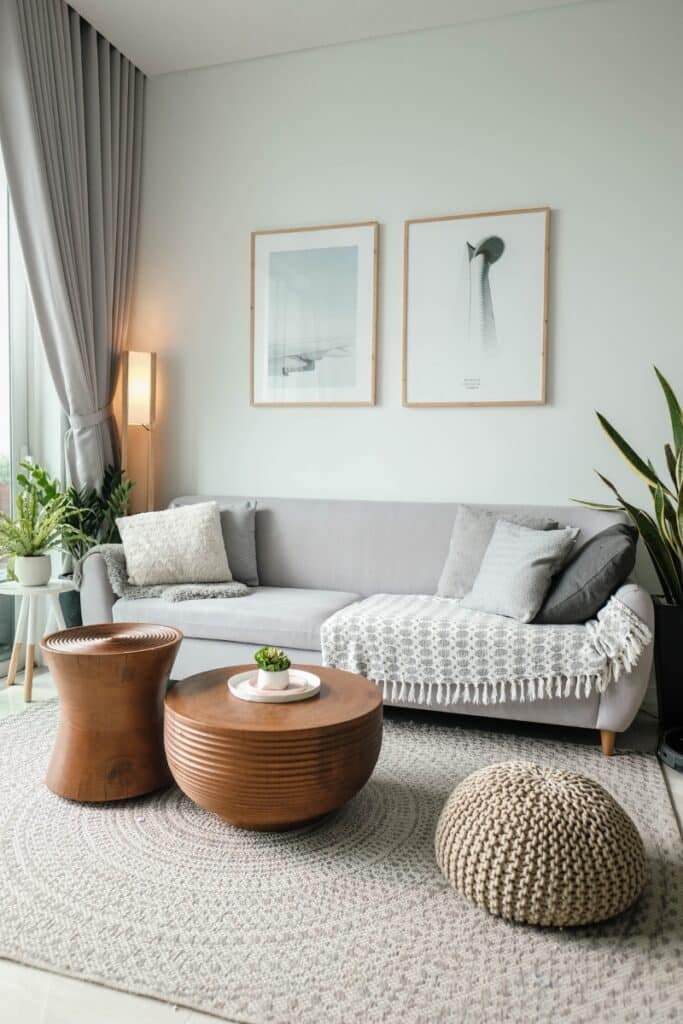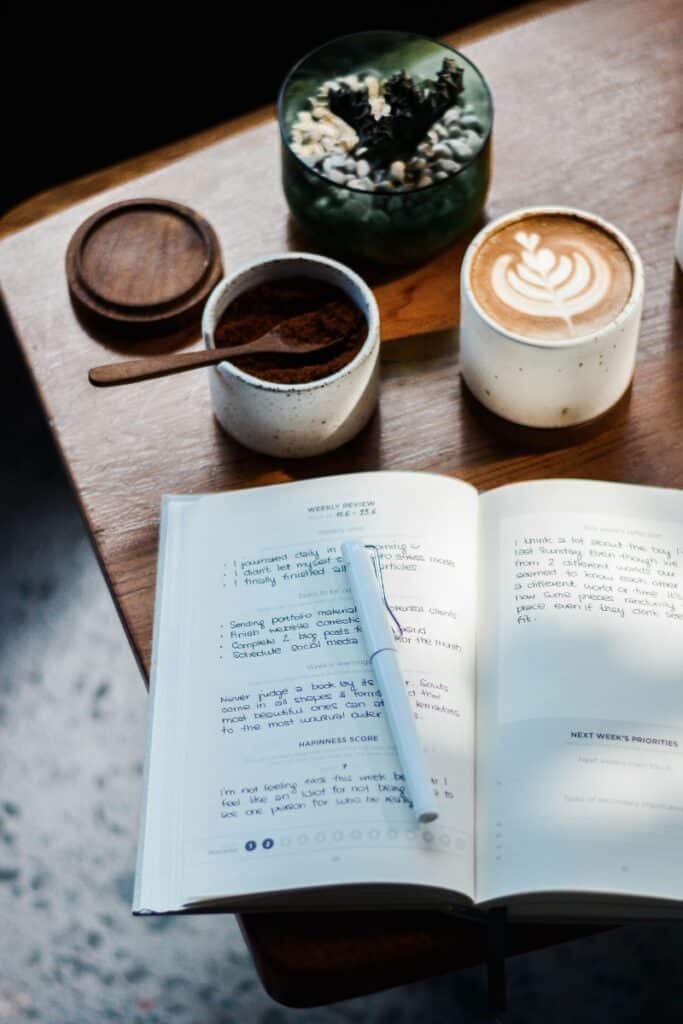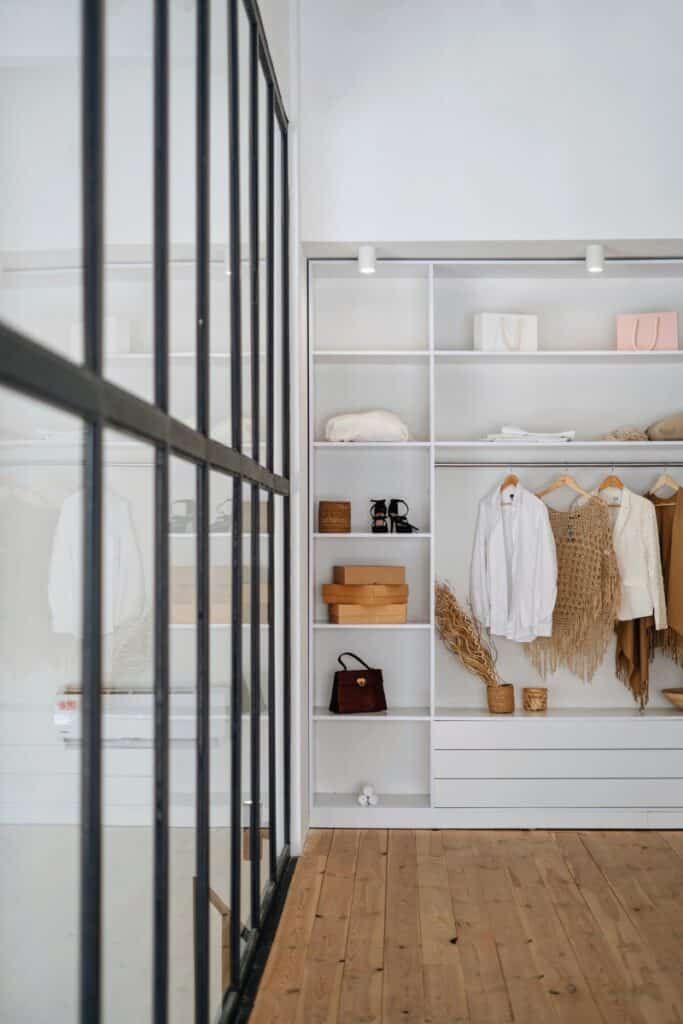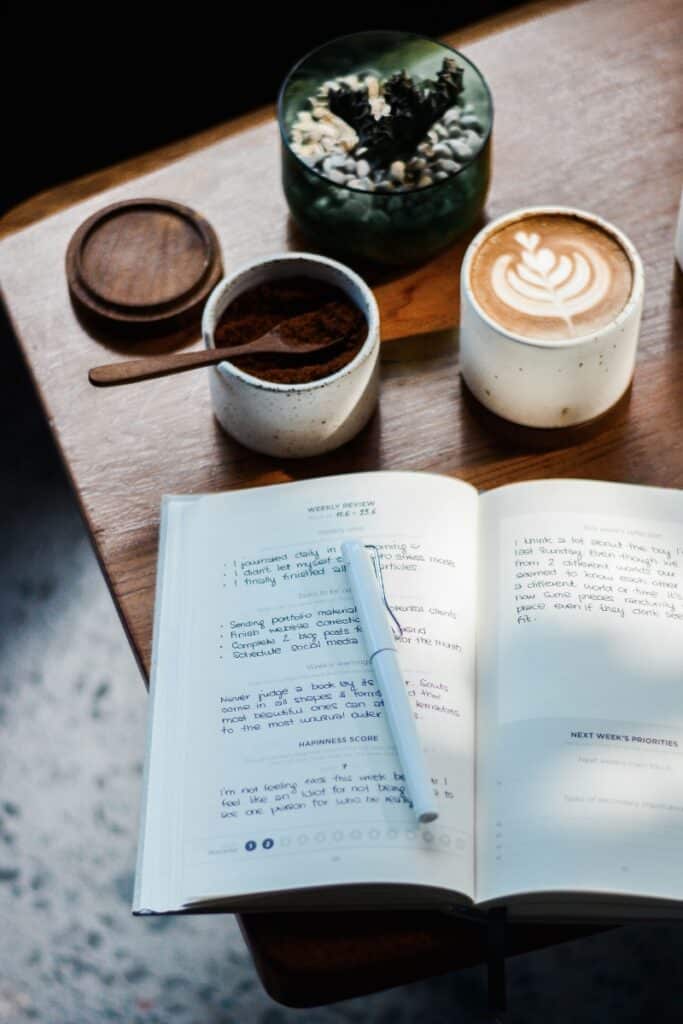
Streamline Your Life: 10 Ways to Master the Art of Mindful Living
Learn how to streamline your life and master mindful living by changing your daily habits.
Do you ever find yourself wishing for more hours in a day to get everything done? If you are feeling overwhelmed, stressed, and your days always seem to be rushed without enough time to complete meaningful activities, it might be time to streamline your life and live more intentionally.
What does it mean to live more intentionally?
Living more intentionally means taking the time to reflect on your life and decide what is important to you. It involves setting goals and creating habits that align with those goals, as well as being mindful of how your actions affect your life and the lives of those around you. If you need help determining what is most important to you, define your core values. These core values will serve as your compass for determining the changes you need to make in your daily routine to better streamline your life and make more room for mindfulness.
Ultimately, by living intentionally, you can make sure that every day is less stressful and is spent in a way that is more meaningful and that brings you closer to achieving your goals.
How to Streamline Your Life and Live More Mindfully
One way to start living more intentionally is by taking inventory of your life now. Take some time to reflect on where you are now and what areas need improvement. Once you have identified these areas, set goals for yourself and create habits that will help you streamline your life and create a healthier, more meaningful routine. These habits could include things like journaling, meditating, or exercising regularly.
To help you get started, here are 10 ways to streamline your life for a more mindful existence.
1. Declutter your Space.

Start by decluttering your space to remove unnecessary distractions. Purge items that no longer serve a purpose and organize the belongings you need. A tidy environment leads to clearer thinking and reduced stress.
To get started and build momentum, start small. Set aside 10-15 minutes each day to put away stray items. This will help you make progress without feeling overwhelmed.
To successfully declutter your space long-term, it’s important to begin going through your belongings one space at a time. When sorting through your belongings, it’s easy to overlook the smaller items in your home, but they can add up quickly. Make sure to declutter your drawers, shelves, and other storage areas too. Once you’ve sorted through your belongings, consider donating or selling any items that are still in good condition but no longer serve a purpose for you.
Finally, it’s important to get creative with storage solutions. If you’re short on space, try using decorative hooks or baskets to store items in an organized way.
2. Prioritize Your Tasks.

How you prioritize your time every day directly impacts your mental state and your ability to achieve your goals. When determining your daily priorities, decide on your most important tasks for the day and tackle them first. It’s helpful to organize your tasks into categories such as “high priority”, “medium priority”, and “low priority” so that you know where to focus your energy when planning your day.
You can also make note of the estimated effort required to complete each task to help you determine which tasks need more attention so you prioritize your day with enough time to successfully check the most important tasks off your list.
If you find that you often get distracted, you may even want to explore time-blocking. Time-blocking is when you schedule a set amount of time in your schedule to complete a task which allows you to devote your full attention to one task at a time, completing it more efficiently.
When you start time-blocking, it’s important to set realistic goals for each task. If you think a task will take an hour give yourself some buffer and block off an hour and a half in your schedule.
Setting unrealistic goals can lead to frustration and a feeling of failure if they aren’t met which can make time-blocking counterproductive to your overall mindfulness journey.
Finally, make sure to take regular breaks throughout your day. Breaks will help keep you focused and energized so that you can stay productive throughout the day.
3. Simplify Your Wardrobe.

Stop wasting time deciding what to wear by simplifying your wardrobe. One of the best ways to simplify your wardrobe is to declutter your closet and create a capsule wardrobe. A capsule wardrobe consists of 30-40 timeless pieces that can be easily mixed and matched, allowing you to create multiple stylish looks without having too many items in your closet.
To get started with creating a capsule wardrobe, begin by decluttering your existing clothing items and sorting them into piles of ‘keep’, ‘donate’ or ‘sell’. Focus on selecting timeless pieces in neutral colors that you can mix and match with the rest of your wardrobe for maximum versatility. You can also add in colorful or patterned garments that can be easily styled with the base neutrals in your wardrobe for more personality.
Finally, consider investing in quality staples such as blazers, jackets, and trousers that will last longer than cheaper alternatives so you won’t have to replace them as often. With these tips in mind, you’ll be able to create a minimalist wardrobe with endless outfits while still expressing yourself through fashion.
4. Develop Mindful Eating Habits.

Pay attention to what you eat and savor every bite. Mindful eating encourages healthy consumption and brings awareness to the relationship between food and the mind. Eating more slowly and savoring your meal can lead to better digestion and help you realize you are full to avoid over-eating.
It’s important to minimize distractions while eating so that you can focus on the experience of eating rather than other activities such as watching TV or scrolling through social media.
After finishing your meal, Take note of how different foods make your body feel – this will help you become more aware of which foods are nourishing for your body and which ones may not be as beneficial for your health.
Overall, just like other activities in our lives, food is meant to be enjoyed and savored by living in the moment. Try to practice mindful eating and see how much it enhances your overall well-being.
5. Exercise Regularly.

Movement is crucial for a healthy mind and body. Incorporate regular exercise into your routine, even if it’s just going for a walk outside or doing a few minutes of stretching.
If you haven’t exercised in a while, start small and build up gradually. Don’t try to do too much too soon or you may become discouraged. It’s also important to find activities that you enjoy and make them part of your routine. This will help keep you motivated and you will start looking forward to exercising.
If you find it hard to exercise alone, make it a social activity and find a workout partner to accompany you for a jog, walk, or workout class. A workout partner will also help keep you accountable for days you are feeling unmotivated.
Finally, reward yourself for getting exercise. This will also help keep you motivated and remind yourself why it’s worth it to stick with it. Your reward can be something simple like an iced coffee after a long walk (just don’t forget to drink water).
6. Unplug from Technology.

Limit your time spent on devices, especially before bed. Constant connection to technology can lead to anxiety and sleep disruptions. If the thought of five minutes without your phone makes you feel uneasy, reduce your tech usage by 10% at a time. This will help you gradually reduce your dependence on technology, making it easier to unplug when needed.
Like everything else on this list, it’s ok to start small. Start by turning off notifications on your devices so that you aren’t constantly bombarded with messages and alerts throughout the day. It’s also helpful to track your app usage so that you can see how much time you’re spending on each one and make adjustments accordingly. How much time are you spending on social media? How often are you checking your email? Can any of these activities be reduced or limited?
Once you are getting more comfortable with disconnecting from technology, start engaging in technology-free hobbies like painting, journaling, yoga, and meditation. This will help you be more mindful and unplug naturally.
Finally, if you want to take it to the next level, consider creating technology-free zones in your home that remind you to unplug or schedule a monthly digital detox where you completely disconnect from all technology for 24 hours or more to give yourself a much-needed break from the digital world. How much you decide to unplug from technology is entirely up to you.
7. Practice Gratitude.

Take time to reflect on your blessings each day and appreciate the small moments in life. Gratitude encourages a positive mindset and helps us enjoy the present moment. One simple way to get started is to keep a gratitude journal. Writing down what you are thankful for each day can help you to stay focused on the positive aspects of your life. It can also be helpful to look back over your journal entries from time to time, as this will remind you of all that you have to be grateful for.
Also, don’t forget to express your gratitude to others. Saying thank you is a simple but powerful way to show appreciation for something or someone. It’s also important to express your gratitude in other ways, such as through acts of kindness or by sending cards or letters of thanks.
8. Create a Morning Routine.
Establishing a morning routine sets the tone for a productive day. Find activities that relax and energize you, such as reading, meditating, or journaling. To get started with developing your morning routine you must maintain a consistent schedule.
Set your alarm for the same time each day and get up at that time, even on weekends. This doesn’t mean you can never sleep in, but it will ensure that you get into the rhythm of a consistent schedule. When building your morning routine, it should start with something small like drinking a glass of water or stretching to ease into your morning and help wake up your body and mind. Other things to consider in your morning routine include:
– Take some time to plan out your day and set goals for yourself so you know what needs to be accomplished.
– Incorporate activities that make you feel good, such as reading, meditating, or listening to music.
– If you aren’t fasting, eat a healthy breakfast that will give you energy throughout the day.
– Get outside if possible – fresh air and sunlight can help boost your mood and productivity levels.
9. Meditate.

Whether you incorporate meditation into your morning routine, evening routine, or use it as a midday break, meditating can be a great way to practice mindfulness and reduce stress. To ensure consistency, consider setting aside a specific time each day to meditate. This will help you form a habit and make it easier to stick with it.
When you are ready to get started with your meditation, find a quiet place where you won’t be disturbed. This could be in your bedroom, living room, or even outside in nature. Start by focusing on your breath. Take deep breaths in and out, paying attention to the sensation of air entering and leaving your body. Don’t get discouraged if your mind starts wandering during meditation – this is normal. Just gently bring your focus back to your breath when this happens. If you’re having trouble staying focused, try using a guided meditation or mantra to keep yourself on track.
10. Learn to Say “No.”
Last, but not least, it’s ok to say no. Saying no can be difficult, but it is essential to avoid overcommitment and stress. Prioritize your time and energy by carefully selecting what you agree to participate in.
Incorporating these ten tips can help you streamline and simplify your life while helping you live more mindfully and intentionally. Focus on creating balanced habits, decluttering your space, and establishing routines that reduce distractions, increase productivity, and help you stay focused on what matters. Take the time to evaluate what works best for you, and enjoy the benefits of a streamlined and mindful existence.





